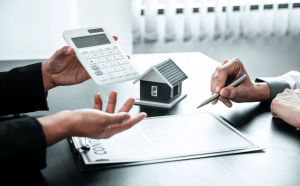Debt meaning and Different Types of Debt
Introduction
Debt is a term for money owed. Debt can be owed by sovereign governments, corporations, or individuals. International debt refers to the debts held by outside entities (sovereigns, banks, investors) towards an economy’s central bank and commercial banks. International debt is typically measured as an aggregate of individual debts taken on by a particular country over time. A country’s total stock of international debt can be measured at a given point in time using the ratio of its total public and private debt in foreign currencies to its gross domestic product (GDP).
Debt is often used interchangeably with the terms liability or obligation. However, not all liabilities are debts: some are obligations that do not require payment. In economics, liabilities usually refer to external debts while obligations refer to internal obligations (such as future pension payments).
Debt – the state of owing something (especially money)
Debt is a state of owing something. When someone owes something, it means that they are not in possession of whatever the item or service is (in this case, money).
Money can be owed for many reasons:
- You may owe someone some money because you borrowed it from them and haven’t paid them back yet. This is called “banking debt.”
- You may have taken out a loan from a bank or other financial institution to buy something big like a house or car and still owe payments on it every month until it’s paid off completely – this is called “mortgage debt” or “home mortgage loan.”
- You may have ordered something online and had it shipped directly to you without paying immediately – now you’re responsible for paying off those items if they don’t fit or turn out to be broken when they arrive (this type of debt was formerly known as ‘ecommerce’ but has been renamed over time due its negative connotations).
debt – an obligation to pay or do something
debt – an obligation to pay or do something
Debt is an obligation to pay or do something. It’s what you owe and the feeling that accompanies an unsatisfied state. In other words, it’s money borrowed that must be repaid, with interest added on top of what you originally borrowed. For example:
- I have a debt of R100 for my friend who loaned me gas money when I was low on funds.
- Their debt of R5000 from college has prevented them from buying a house yet (they’re saving up).
debt – the feeling that accompanies an unsatisfied state
- A feeling of owing someone for something.
- The feeling of owing money to someone, or the amount owed.
- The feeling of owing someone for a favor or service, or the amount that is owed.
- The feeling of owing someone for a good deed, or an undeserved debt.
- The feeling of owing someone for a bad deed, such as having done something wrong or hurtful to them and not making it up to them.
debt – the feeling of being indebted to someone for a favor or service
Debt is the feeling of being indebted to someone for a favor or service, or for money that you have borrowed. For instance, if you borrow R200 from your friend and agree to pay him back sometime in the future, then you will feel indebted to him because he has provided something of value (money) that you did not originally possess.
debt – an amount owed for funds borrowed
Debt is the total of all amounts owed for borrowed funds. It can be described as a financial obligation or liability owed to a lender, usually in the form of a loan, over which there are repayment terms.
Debt may also be used as an accounting tool to represent other forms of obligations and entitlements, such as trade credits (inventories), leases and more.
The term “debt” was first used in relation to credit in 1615 by Thomas Northcote. The Latin word debere meant “to owe,” but it had no plural form at that time.[2] Over time, debt acquired its current meaning.[3]
debt – anything owed (as a loan); “he has R2000 in debts”
Debt is a loan. It’s also the opposite of debt, which is having money owed to you. Debt is a sum of money owed by one party to another for a specified period of time. For example, if someone takes out a car loan with you as the bank, then they owe you money for that car (the amount). If they don’t pay back their debt on time because their financial situation has changed, then their debt becomes overdue and past due debts eventually become bad debts if they continue missing payments; only then does it become delinquent and eventually charge offs when too much time goes by without repayment from the debtor who owes you money (borrowers). A good way to think about this concept is like this: Debt = Debtor = Creditor = Lender = Borrower
Debt is what you owe
Debt is a financial obligation. It’s the amount you owe to someone else, often due to using their money or purchasing something on credit. Debt is a loan that you must repay with interest. The lender (or borrower) has more than one option if you do not repay your debt:
- Sell other assets until they have enough money to pay back the borrowed sum and still have something left over for themselves
- Take legal action against the debtor, such as suing them in court
Different kinds of debt and debt meanings
Introduction
Did you know that not all debt is created equal? Here’s a look at the different types of debt out there:
Secured debt is a loan that has an asset (house, car, etc.) as collateral. If you fail to repay the loan, the creditor can take ownership of the collateral. For example, if you get a mortgage to buy a house and you default on payments, the bank can take possession of your house.
Secured debt is a loan that has an asset (house, car, etc.) as collateral. If you fail to repay the loan, the creditor can take ownership of the collateral. For example, if you get a mortgage to buy a house and you default on payments, the bank can take possession of your house.
If you are in secured debt and have difficulty paying back the loan amount on time or at all, it’s best to talk with your creditors about getting some form of payment relief plan so they don’t repossess or foreclose on your assets.
Unsecured debt is a loan that has no asset as collateral. If you fail to repay your loan, the lender has no right to seize any property or assets. Examples are credit card debt and most personal loans.
Unsecured debt is a loan that has no asset as collateral. If you fail to repay your loan, the lender has no right to seize any property or assets. Examples are credit card debt and most personal loans.
The main difference between secured and unsecured loans is that a secured loan uses an asset as collateral for the loan (like a car), while an unsecured loan does not (like student loans).
Non-revolving debt is debt with fixed monthly payments and interest rates. These loans come with set terms — meaning they have a specific payoff period (such as 30 years for mortgages), rather than open-ended terms like credit cards or lines of credit.
Non-revolving debt is debt with fixed monthly payments and interest rates. These loans come with set terms — meaning they have a specific payoff period (such as 30 years for mortgages), rather than open-ended terms like credit cards or lines of credit.
Non-revolving debt often has lower interest rates than revolving debt, since it’s not designed to be paid off quickly (and thus incur more interest).
Revolving debt, on the other hand, allows you to continue borrowing, up to a limit that’s set by the lender — until it’s paid down significantly. These types of loans include credit cards and home equity lines of credit (HELOC). The minimum payment due each month changes based on how much new debt you add or subtract from your account balance each month.
Revolving debt
Introduction
Revolving debt is something you need to know about, but it can be a polarizing topic. Some experts claim that all revolving debt is inherently bad and not worth taking on under any circumstances. Others claim that it’s an important tool that everyone should take advantage of, if they’re smart and responsible with their finances. So who’s right? The truth lies somewhere in the middle of these two extremes: Revolving debt can have both good and bad effects on your financial history, depending on how you use it. This guide will help you understand what revolving debt is, how it works, and when it might be useful or harmful. We’ll also show you how to get out of a revolving debt trap if you find yourself stuck in one and don’t know what to do next!
It’s what happens when people abuse credit lines
Revolving debt is a way to get into debt faster than you can afford. When you have a credit card, you’re given a certain amount of money (or “credit”) that’s supposed to be used for emergencies or other unexpected expenses—not for regular bills like rent, groceries and utilities.
The problem with revolving debt is that people spend more than they can afford on their cards because they don’t feel the pain from spending immediately: You don’t have to pay off the full balance each month since most credit cards charge interest only on what’s left over at the end of the billing period (plus some other fees). So if your card has an annual percentage rate (APR) of 20 percent and you borrow R1000 at one time and then add another R1000 later in the month when your limit resets, that extra R1000 won’t cost anything extra—but it will add up quickly because all those little charges are added up at once when they’re due at once rather than being spread out over several months as they would be if you were paying off each purchase separately instead of putting it all on one line item called “CASH ADVANCE” instead of “FOOD/GAS/ELECTRIC BILLS” etc.
It’s a potentially good thing
But first, a few things to keep in mind:
- If you can pay off the balance and avoid interest charges, it’s not really debt.
- If you use it to build your credit history (and then pay off the balance), that’s not really debt.
- If you use it to invest in yourself or company (and then pay off the balance), that’s not really debt.
It can hurt your credit history
- It can hurt your credit score.
- It can cause you to pay more in interest.
- It can negatively impact your credit history.
It can be a trap
If you’re using a credit card to pay for everyday expenses, you can end up spending more than you can afford. That’s because the interest rate on many credit cards is higher than it is on other types of loans. If you make only minimum payments every month, it will take years to pay off what you owe–and that means interest charges will pile up.
If your credit card isn’t helping with emergencies, either: If your car breaks down or someone in your family gets sick and needs medical care, using a credit card to pay for these things can put an extra financial strain on your budget. This could leave less money for other important things like housing or food–and make it harder for people who are already struggling financially to get back on their feet again quickly.
There is such a thing as revolving debt relief
There is such a thing as revolving debt relief. When you’re in the red, it’s important to know all your options. One way to get rid of your revolving debt is through a loan for debt consolidation, where you combine multiple bills into one larger monthly payment. You can also try debt settlement, where an agency negotiates with your creditors on your behalf and helps them agree on a lower amount, Real Estate Assist can take care of this for you in South Africa!
Revolving debt has its good and bad sides like everything else.
Revolving debt is a common form of consumer debt. If you have this type of debt, it means that you have a balance on your credit card that can change from month to month based on your purchases and payments. This kind of revolving credit account allows you to use the funds available in your account as long as there is money available in the account at the time of purchase.
Revolving accounts can be helpful because they allow consumers to make large purchases without needing collateral or up-front payment for an item that might be sold below market value by another seller. If you are behind on mortgage payments and need to unlock equity or need to buy some time to maximize your proceeds, or help with consolidating your debts, We can help!
Revolvers have balances that fluctuate over time. Usually these are open-ended debts like credit cards and other lines of credit where borrowers can continue to access their revolving line until they reach their limit.
Mortgages
Mortgages are loans used to purchase real estate. They are secured debts and therefore have priority over other unsecured debts in the event of bankruptcy. Mortgages have fixed monthly payments and interest rates, set terms, and a specific payoff period.
Conclusion
You don’t have to be a finance expert to understand the different types of debt, but it is important to know the difference between them so that you can make the best financial decisions for your future. You also want to keep in mind that some types of debt are more risky than others and could cost you a lot of money if you don’t pay them on time.
Now that you know what debt means, make sure to pay it back!




